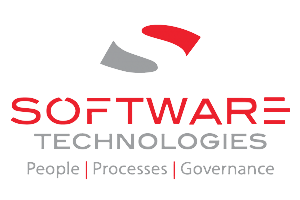Many directors are feeling outmatched by the ferocity of changing technology, emerging risks, and new competitors. Here are four ways to get boards in the game. Today’s boards are getting the message. They have seen how leading digital players are threatening incumbents, and among the directors we work with, roughly […]
Board Management Software
Elevating Productivity & Streamlining Processes at ICDC
“eHorizon eBoard has added value to our organization in terms of our board meeting management processes. It is a great system that has greatly helped our organization in making our board directors proactive.” Ms. Leah Mumbi- Head of ICT, Industrial & Community Development Corporation Established in 1954, ICDC has over […]
The Great Board Discussion with Bain Academy
Bain is one of the world’s top management consulting firms. The organization works with leaders across industries and geographies to solve industry-defining challenges in Strategy, Marketing, Organization, Operations, Digital Transformation, Sustainability and M&A. Founded in 1973, Bain has 6,000 employees in 58 offices worldwide. Bain has worked with over 4,900 companies, including more than two-thirds of the […]
Increasing Accountability & Streamlining Processes at TelPosta Pension Scheme
“For me, eBoard has been an amazing experience. Using it has made it easy for me to manage the process of preparing for board meetings, distribution of board packs, capturing minutes and monitoring who has read the board pack” Mr. Peter Rotich, Administrator / Trust Secretary, TelPosta Pension Scheme The […]
Driving Efficiency, Streamlining Processes & Enhancing Productivity at Bamburi Cement Limited
“We now have a refined approach when preparing for and documenting Board and Committee meetings together with relevant documentation. As a result of eBoard, we now have paperless meetings, a central document repository accessible to all from anywhere as well as the ability to carry out board performance evaluations and […]
STL World Environment Day 2019
With current conversations about climate change, deforestation, and the finite nature of natural resources, sustainability is on the minds of consumers, investors, and corporations. But more than that, it’s also in our hands. 1.1 Hectares of Indigenous Trees In an effort to help reforestation efforts in Kenya, Software Technologies Limited […]
eBoard Powers Boardroom Efficiency for KenGen’s Sustainable Future
The eBoard iPad use is very intuitive and learning to use eHorizon eBoard system is quite easy. Recently, our new Company Secretary was able to capture minutes using the eHorizon eBoard system without any formal training and for the first time; our board meeting minutes were ready immediately after the […]






